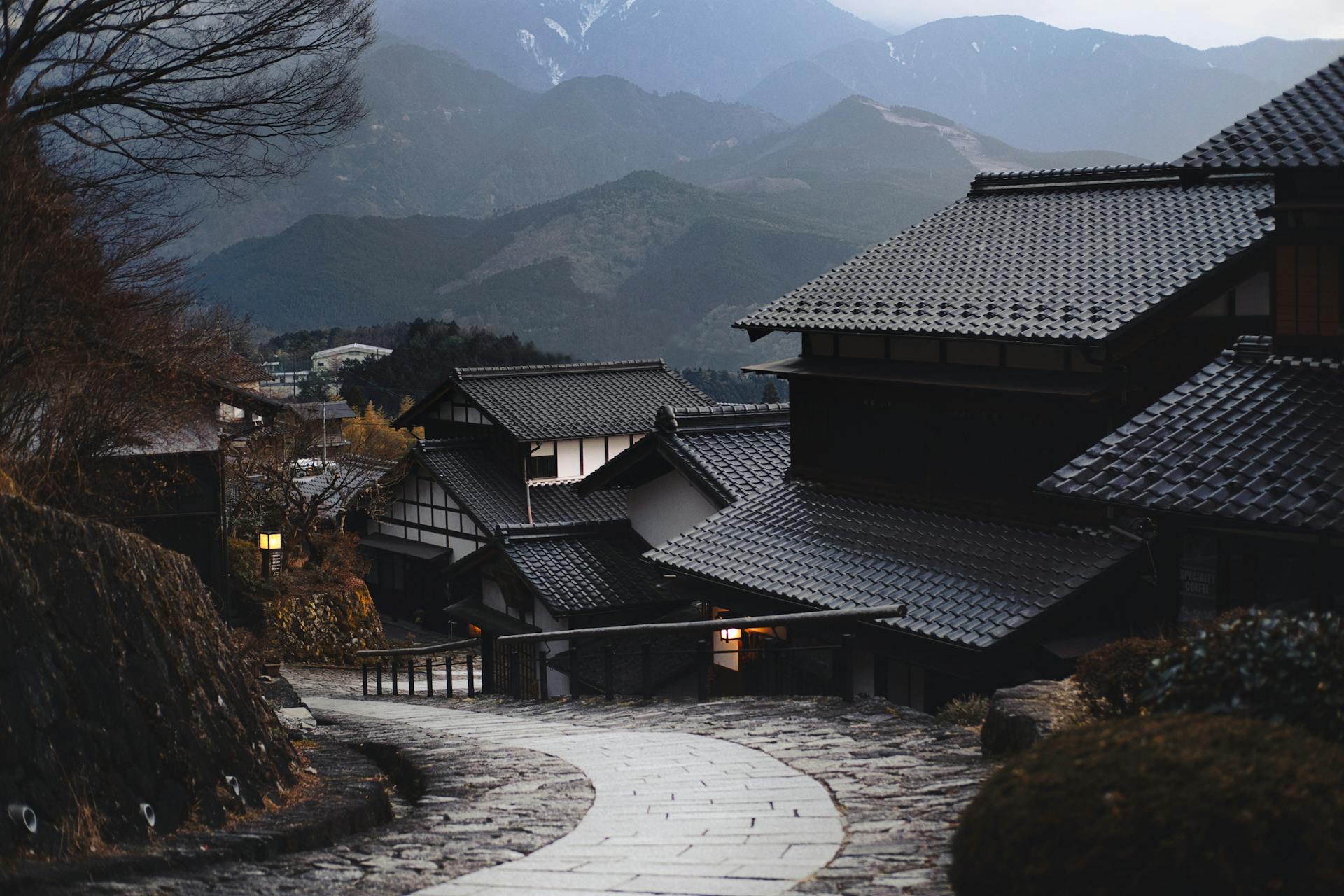In the small city of Ibara, nestled within the Okayama Prefecture of Japan, the seasons danced to the rhythm of a land caught between tradition and modernity. The city, known for its serene gardens, centuries-old textile industry, and the gentle rustling of willow trees lining the Yoshii River, carried an understated charm. It wasn’t a city that shouted; it whispered. And it was in the whispering heart of Ibara that two lives, seemingly ordinary yet infinitely complex, collided.
The girl, Aiko, was a seamstress in her early thirties, her hands weathered by years of weaving fabric but her spirit ageless and wise. Her wisdom wasn’t the kind that came from books but from a life that had demanded much and offered little in return. The keyword of her existence, and soon of this story, was yukue—a Japanese term meaning “whereabouts.” Aiko had spent her life searching for the whereabouts of belonging, of purpose, and of love, even as she seemed to radiate an inner knowing that puzzled those around her.
The man, Daiki, was a stranger to the city, arriving from Tokyo with a camera slung over his shoulder and an air of restless ambition. He was a photojournalist, drawn to the quiet of Ibara to escape the cacophony of the capital. Daiki sought stories in the folds of life, the unspoken tales hidden in plain sight. His presence was a disruption, a single ripple in the still pond of Aiko’s predictable days.
When Aiko and Daiki first met, it was under the shadow of the willows by the Yoshii River. The leaves whispered the same question that would bind them together, a question that would thread its way through their story like a needle through fabric: Where do we truly belong?
The textile district of Ibara was the city’s beating heart, its looms echoing with the cadence of centuries. Aiko had worked in one of its smaller workshops since she was sixteen. Her mornings began early, her hands moving with the precision of someone who had spent her life weaving not just fabric but also the strands of survival.
It was a rare afternoon off when Aiko found herself walking by the Yoshii River, the willows swaying gently as if bowing to some unseen deity. Her thoughts were interrupted by the click of a camera shutter. Turning, she saw Daiki, crouched low, his lens pointed at the water where light fragmented into a dance of gold and silver.
“You shouldn’t be here,” Aiko said, her voice calm but firm. “This is private land.”
Daiki straightened, a faint smile on his lips. “Is it? I’m sorry, I didn’t see any signs.”
“There aren’t any,” Aiko replied, crossing her arms. “But you should know.”
Daiki laughed softly, not mockingly but with a kind of genuine surprise. “You sound like you own the place.”
“I don’t,” Aiko said. “But I know it.”
Daiki looked at her then, truly looked, as though he was taking her photograph without a camera. “Maybe you can show me what I’m missing.”
Their first real conversation took place in the dim warmth of a local tea house. Daiki had insisted on thanking Aiko for not reporting him, though she insisted there was nothing to report.
“You’re not from here,” Aiko observed, watching him fumble with the teacup.
“Tokyo,” Daiki admitted. “But I’m here for the quiet. And the stories.”
“What kind of stories?”
“The kind people don’t think are worth telling,” Daiki said, his gaze meeting hers. “Like yours.”
Aiko blinked. “You don’t know my story.”
“Not yet,” Daiki said, smiling faintly. “But I’d like to.”
Daiki became a fixture in Aiko’s life, much to her initial annoyance. He showed up at the workshop, asking questions about the fabric, the dyes, the patterns. He followed her to the markets, his camera capturing the details she took for granted. Slowly, she began to open up, her guarded words revealing a life of quiet resilience.
“Why do you stay?” Daiki asked one evening as they walked by the river. “In Ibara, in the workshop?”
Aiko hesitated. “Because this is where I’m meant to be.”
“Is it?” Daiki pressed. “Or is it just where you ended up?”
The question lingered in the air like the scent of the willows. Yukue. Whereabouts. The word that had haunted Aiko all her life.
As the weeks passed, Aiko and Daiki’s connection deepened, their conversations weaving a tapestry of shared hopes and unspoken fears. But their bond was tested when Daiki revealed his plans to leave Ibara.
“I can’t stay,” he said, his voice heavy with regret. “There’s more out there, stories that need to be told.”
Aiko’s heart twisted. “And what about this story? What about us?”
Daiki looked at her, his eyes shadowed. “Maybe some stories aren’t meant to have endings.”
In the months that followed Daiki’s departure, Aiko returned to her routines, but something had shifted. The willows by the river seemed to whisper louder, their question more insistent: Where do we truly belong?
One day, a package arrived for Aiko. Inside was a photo—a candid shot of her by the river, her face illuminated by the dappled sunlight. On the back, Daiki had written: Yukue. Sometimes, we belong where our hearts are free.
Years later, Aiko still kept the photo, tucked away in a drawer she rarely opened. She never heard from Daiki again, but his words stayed with her, guiding her through moments of doubt and change.
And though she remained in Ibara, her heart carried the echo of the willows, the question that had bound them together, leaving her and the readers alike to ponder the great mystery of yukue—of belonging, of purpose, and of love.

Leave a Reply